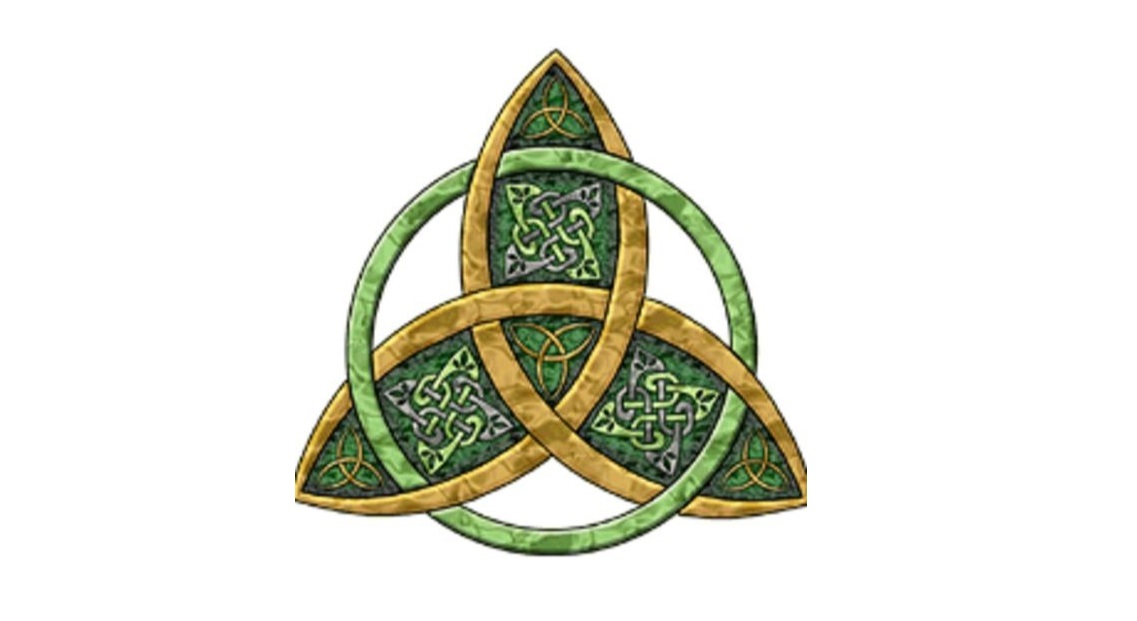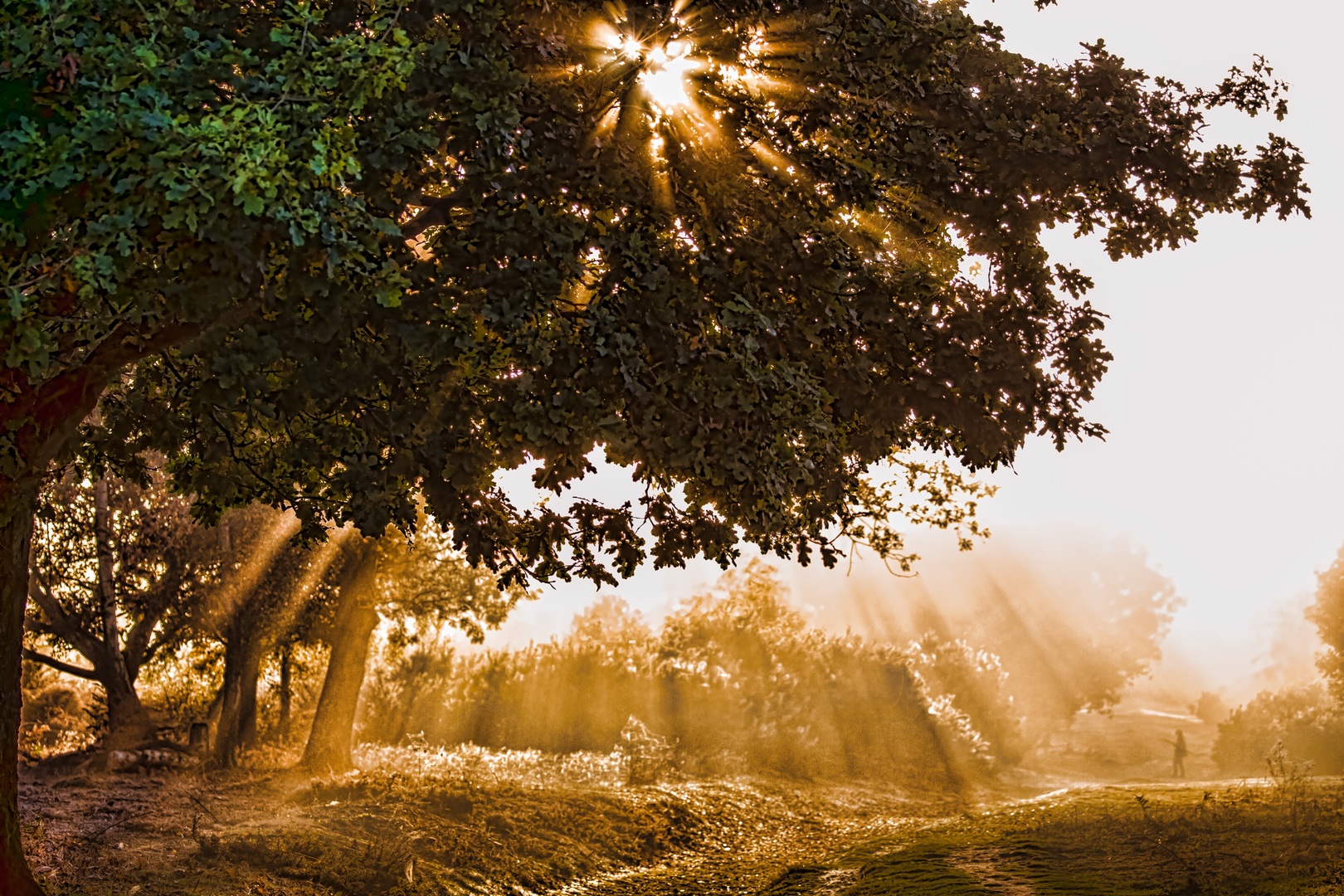Human Being and Becoming
God’s Goodness and the Nature of Humanity
Photo credit: Johannes Plenio, Wallpapers Wide.
Introduction
God’s only way to create humans was to make us human beings who are human becomings. We are called by God to define our human natures by who we love, what we love, why we love, and how we love. We are relational as God is the relational Father, Son, and Spirit. We are finite beings getting to know the infinite God of love, so our participation in God’s love will be infinite and unending.
Messages and Resources on Human Being and Becoming
The Creation Account in Genesis and Tolkien's Silmarillion
J.R.R. Tolkien's poetic vision of creation as a song is brilliant and helpful for us to understand how God can create other beings with wills of their own; I point out the limitation I see, but have deep appreciation for him.
How Our Choices Shape Our Desires: Humanity Experiencing the Triune God
This is a message based on the framework described above. God is an infinitely good being whose love determines His nature, and vice versa. So He had to make us originally good, with the invitation to love to determine our nature. This is why our choices shape our nature and desires.
The Theme of the Heart, Human Being, and Human Becoming in the Book of Proverbs
These notes explore how the Proverbs see our own human hearts as tablets on which God calls us to write His wise teachings
Human Dignity: Does Every Individual Matter?
Science, philosophy, existentialism, other religions, and double-predestination based theologies mean that some human beings do not matter. Only a fully Trinitarian theology with a medical substitutionary atonement can provide an adequate foundation.
Why Human Free Will is Essential to Being in the Image of the Triune God
God is an infinitely good being whose love determines His nature, and vice versa. So He had to make us originally good, with the invitation to love to determine our nature. This is why our choices shape our nature and desires. See also Human Free Will and God’s Grace in the Early Church Fathers, quotations from early church theologians demonstrating their agreement, until Augustine, that is. To see this played out in biblical exegesis of a particular passage, see Did Jesus Hide the Father? An Exegesis of Matthew 11:25 - 30, which is a letter to a Calvinist friend, concerning his claim that Jesus hid the Father from the unelect.
The Tree of Knowledge of Good and Evil: What Was It, Really? Was Evil Necessary?
This is a small group leader discussion guide to Genesis 2:8 - 17 and the nature of the Two Trees in the original Garden of Eden. They are not arbitrary, but were, in fact, necessary.
A paper submitted to the Pappas Patristics Institute in March 2019.
Neuroscience and the Theological Anthropologies of Irenaeus and Origen
A paper submitted to Dr. George Dragas at Holy Cross Greek Orthodox Seminary, May 2019. I believe Origen made a mistake when he said that the soul is in the image of God and the body is not. This makes Origen hard to reconcile with Genesis 1 - 2 and also modern neuroscience, which affirms a body-brain-mind connection.
Early Christian Reflections on Human Being and Becoming
Protestants do not give sufficient attention to human nature. This mistake leads to tendencies: We view ourselves as human doings more often than human beings. We view the garden as an arbitrary form of ‘probation’ externally and legally imposed on us, rather than a context of ordered beauty necessary for our internal and intrinsic development. We see God as waiting for us to fail, and pounce. We interpret the consequences of the fall in terms external to us (hardship, exile as punishment) rather than internal to us (alienation from God as life-giver, but prevented from immortalizing sin in ourselves).
We wrongly associate ‘good works’ with something extrinsic to us (like a score sheet in God's mind) rather than intrinsic to us (like the neurological development of our brain, and the formation of our human nature as a whole). We see the significance of Jesus' death in terms external to him rather than internal to him. That is, we think Jesus absorbed divine punishment and deflected it from us, whereas he shared in the corruption of our human nature, and healed it as one of us, to share his new humanity with us. And we connect our joy in heaven or sorrow in hell to factors external rather than internal to us, namely that we have been adjusted so we can participate in God's love.
The following are examples of Christian theologians or literature from the early church describing human beings as human becomings, and human nature as a work in progress, involving our choices to love. This is also the paradigm called “virtue ethics.” See Inspiring Philosophy, Christian Virtue Ethics. Inspiring Philosophy, Dec 10, 2021. For more background, see also Inspiring Philosophy, The Case for Virtue Ethics. Inspiring Philosophy, Nov 19, 2021.
Ignatius of Antioch, Epistle to the Magnesians, chapter 5 describes us by using an analogy of the coin becoming stamped and minted; the longer version reads,
“Seeing, then, all things have an end, and there is set before us life upon our observance [of God's precepts], but death as the result of disobedience, and every one, according to the choice he makes, shall go to his own place, let us flee from death, and make choice of life. For I remark, that two different characters are found among men--the one true coin, the other spurious. The truly devout man is the right kind of coin, stamped by God Himself. The ungodly man, again, is false coin, unlawful, spurious, counterfeit, wrought not by God, but by the devil. I do not mean to say that there are two different human natures, but that there is one humanity, sometimes belonging to God, and sometimes to the devil. If any one is truly religious, he is a man of God; but if he is irreligious, he is a man of the devil, made such, not by nature, but by his own choice. The unbelieving bear the image of the prince of wickedness. The believing possess the image of their Prince, God the Father, and Jesus Christ, through whom, if we are not in readiness to die for the truth into His passion, His life is not in us.”
Ignatius of Antioch, Epistle to the Romans, chapter 6 refers to his impending martyrdom in Rome as part of his human becoming. Although he says, “I will be a human being,” he means in effect a human becoming, for he coordinates his coming death with Jesus’ death on the cross as the climactic moment where the words were said, “Behold the man.”
“Birth pangs are upon me. Suffer me, my brethren; hinder me not from living, do not wish me to die. … Allow me to receive the pure light; when I shall have arrived there, I will be a human being—allow me to follow the example of the passion of my God.”
Epistle to Diognetus, chapters 11 - 12 describes the positive side of spiritual growth: the human being increases in virtue, with God. The Epistle also says that the tree of knowledge and tree of life are complementary for one positive purpose. This is important because the tree of knowledge had to serve a proper and good purpose for human development; it was not a trick:
“For in this place the tree of knowledge and the tree of life have been planted; but it is not the tree of knowledge that destroys — it is disobedience that proves destructive. Nor truly are those words without significance which are written, how God from the beginning planted the tree of life in the midst of paradise, revealing through knowledge the way to life, and when those who were first formed did not use this [knowledge] properly, they were, through the fraud of the Serpent, stripped naked. For neither can life exist without knowledge, nor is knowledge secure without life. Wherefore both were planted close together.”
Epistle of Barnabas, chapters 4 and 20 describes the impact of sin on human nature as self-harm.
Athenagoras of Athens, The Resurrection of the Dead chapters 14 - 15 argues that resurrection is God's will for human beings according to our nature, not simply for judgment revealing good or evil choices, because young children who have not done either will be raised; yet we are meant to have virtue and nobility in ourselves.
Theophilus of Antioch, To Autolycus book 1, chapter 2 says:
“Regarding the eyes of the soul and the ears of the heart, that it is by them we are able to behold God. For God is seen by those who are enabled to see Him when they have the eyes of their soul opened: for all have eyes; but in some they are overspread, and do not see the light of the sun. Yet it does not follow, because the blind do not see, that the light of the sun does not shine; but let the blind blame themselves and their own eyes. So also you, O man, have the eyes of your soul overspread by your sins and evil deeds. As a burnished mirror, so ought man to have his soul pure. When there is rust on the mirror, it is not possible that a man's face be seen in the mirror; so also when there is sin in a man, such a man cannot behold God.”
Irenaeus of Lyons, Against Heresies book 4, chapter 29, paragraph 1 uses the image of the sun for God, where human free will determines how we experience the sun.
Irenaeus of Lyons, Against Heresies book 4, chapter 29, paragraphs 1 - 4 again explains God as light, and free will as determining the state of our eyes, thus hell is self-blinding.
Irenaeus of Lyons, Against Heresies, book 4, chapter 38 refers to God’s intent for humanity in creation as growth and ascent towards the perfect, that is, Himself.
Origen of Alexandria, On First Principles book 3, paragraph 11 says that God is the sun, and we become either like softened wax or hardened clay by our choices.
Aphrahat of Syria, Demonstration 17, paragraph 7 says that God created us with moral discernment, and also that God wanted us to welcome Him in our thoughts, as He first conceived us in His thoughts:
“And after that God brought forth Adam from within His thought, He fashioned him, and breathed into him of His Spirit, and gave him the knowledge of discernment, that he might discern good from evil, and might know that God made him. And inasmuch as man knew his Maker, God was formed and conceived within his thought, and he became a temple for God his Maker, as it is written, You are the temple of God. And (so) He Himself said:— I will dwell in them and walk in them. But as for the sons of Adam, who do not recognise their Maker, He is not formed within them, and does not dwell in them, and is not conceived in their thought; but they are accounted before Him as the beasts, and as the rest of the creatures.”
Athanasius of Alexandria, Life of Antony This is the paradigm-setting book that influenced many Christian leaders afterwards. Athanasius pays attention to how Antony cultivated ‘virtue’ - the life of Christ - within himself.
Ambrose of Milan, On the Christian Faith, book 3, chapter 20 writes of angels:
“Even in their nature there is a capacity of sin, though not one of improvement by discipline’ as with us, ‘for every reasonable creature is exposed to influences from without itself, and liable to judgment. It is on the influences which work upon us that the award of judgment, and corruption, or advance to perfection.”
Cyril of Jerusalem, Catechetical Lectures, Lecture 2, paragraph 1 describes sin as self-harm, but in this life not incurable
Cyril of Jerusalem, Catechetical Lecture 6, paragraph 29 refers to God being like a sun, whose nature is not to blind, but a person's eyes can be diseased and hurt, and thus blinded
Cyril of Jerusalem, Catechetical Lectures, Lecture 18, paragraphs 19 - 20 describes sin as producing scarring that needs healing and cleansing
Gregory of Nyssa, Life of Moses This is a classic of spiritual formation. Gregory uses the story of Moses ascending Mount Sinai as a motif for the Christian infinitely ascending in experience of God.
Theodoret of Cyrus, Demonstrations by Syllogism, Proof that the Divinity is Impassible, paragraph 15 Says that we imprint our sins on our own bodies, commenting on Colossians 2:14.
“If our Lord and Saviour nailed the handwriting to the cross, as says the divine Apostle, He then nailed the body, for on his body every man like letters marks the prints of his sins, wherefore on behalf of sinners He gave up the body that was free from all sin.”
Maximos the Confessor, Ad Thalassios 61 says that death is not a debt that we need to escape:
“rather, the baptized acquires the use of death to condemn sin, which in turn mystically leads that person to divine and unending life. Such will ensue if the saints, for the sake of truth and righteousness, have virtuously finished the course of this life with its many sufferings, liberating their nature within themselves from death as a condemnation of sin and, like Christ, the captain of our salvation, turned death from a weapon to destroy human nature into a weapon to destroy sin.”
John of Damascus, Exposition of the Christian Faith, book 2, chapter 12 says that we are made in the image of God (human being) and are meant to grow in the likeness of God (human becoming); the acquisition of virtue in us, by us, in partnership with God, is human becoming; see also book 3, chapter 14.
Anthony Hughes, Ancestral Versus Original Sin: An Overview with Implications for Psychotherapy (St. Mary Orthodox Church) presents a helpful explanation between the Eastern "corrupted nature" view of the fall, against the Augustinian-Western "inherited guilt" view, and spells out some practical implications for counseling and therapy.
Other Resources on Human Becoming and God’s Goodness
C.S. Lewis, Perelandra. Scribner | Amazon page, 1944. Lewis offers a science fiction parable that imagines how a planet without a fall would look like.
David Bentley Hart, Nihilism and Freedom. Lecture; date unknown. Hart gives a historical overview of how Christian views of "God's sovereignty" and "human freedom" changed over time.
John Polkinghorne, Can Physics Teach Us About God? | John Polkinghorne in Conversation, Jun 16, 2012. Because God is love, “God has allowed us to be ourselves and to make ourselves” (9 min) God established openness and indeterminacy because of His love. God only does what is consistent with God’s nature, which is love.
James Olthius, Be(com)ing: Humankind as Gift and Call. Philosophia Reformata, 1993.
Colin Gunton, The Doctrine of Creation: Essays in Dogmatics, History, and Philosophy. UNKNO | Amazon page, Oct 2004. See also pdf book
Colin Gunton, The Triune Creator: A Historical and Systematic Study. Eerdmans | Amazon page, Mar 1998. See also pdf book
Catherine Keller, The Face of the Deep: A Theology of Becoming. Routledge | Amazon page, Nov 2002. Keller rightly stresses that Genesis 1 narrates God creating “out of the waters” and not “out of nothing.” This leads to an exploration of “becoming” in “face to face” encounter with God. While “creation out of the waters” is not fundamentally opposed to “creation out of nothing” as some have advocated, an appropriately biblical reflection would certainly lead to a stress on “becoming,” as Keller explores.
Andy Crouch, Are We Created? Explore God, Jul 27, 2013. A 4 minute video.
Derrick, David Bentley Hart on Impassibility as Joyful, Transcendent Love. A Greater Courage blog, Apr 12, 2012.
Alexis Torrance, The Concept of the Person in Orthodoxy. Pravoslavie, Mar 14, 2013.
Matthew A. Moser, On the Challenges of Dante #1: Taking Goodness Seriously. blog, Feb 2014.
N.T. Wright, The Song of Worship. Relevant, Mar 17, 2014. A 3 minute video.
Greg Boyd, Process Theology and Open Theism: What's the Difference? ReKnew, Mar 24, 2014.
Ryan Reeves, The Silmarillion. Gordon-Conwell Theological Seminary | Ryan Reeves, Sep 14, 2014. A 55 minute video. Tolkien’s Silmarillion is a beautiful parallel (Tolkien intended it as a complement) to the Genesis creation story with regards to the problem of evil and original goodness.
Father Aidan Kimel, Christos Yannaras: The Fall of Humanity into the Desperate Passion for Survival. Eclectic Orthodoxy blog, Jan 11, 2015.
Thomas Belt, At Liberty to Become Free. Eclectic Orthodoxy blog, Aug 21, 2015.
Thomas Jay Oord, The Uncontrolling Love of God: An Open and Relational Account of Providence. InterVarsity Press | Amazon page, Dec 6, 2015. See also Thomas Jay Oord, How is Divine Providence Possible, if the Future is Unknown to God? Loyola Productions Munich, Dec 10, 2015. Oord gives a 2 minute video presentation.
Ronald Osborn, The Scandalous Origins of Human Rights. Veritas Forum, Jan 15, 2016.
Tom Belt, God Wills Our Improvisation. An Open Orthodoxy blog, Apr 6, 2016.
Frank Wilczek, Why Is the World So Beautiful? On Being, Apr 28, 2016.
John Milbank, The Analogy of Being. University of Nottingham, Jun 16, 2016.
Christopher Fisher, God is Not All-Powerful, and the Bible Tells Us So. Uncontrolling Love, Aug 25, 2016.
Bobby Grow, The Covenant of Works, the Covenant of Grace: What Are They? The Evangelical Calvinists Respond. Evangelical Calvinist, Sep 19, 2016.
Jason Micheli, If There’s a Reason for Everything, There’s No Reason to Worship. Tamed Cynic blog, May 17, 2017.
N.T. Wright, Resurrection and the Renewal of Creation. Baylor’s Truett Seminary, Dec 14, 2018.
Richard Beck, God’s Omnipotence: Part 8, Divine Power as Energy. Experimental Theology, Apr 15, 2020. A review of Katherine Sonderegger’s Systematic Theology; “energy” in the modern scientific sense.
Inspiring Philosophy, Christian Virtue Ethics. Inspiring Philosophy, Dec 10, 2021. For more background, see also Inspiring Philosophy, The Case for Virtue Ethics. Inspiring Philosophy, Nov 19, 2021.
Girl Next Gondor, Redemption and Villainy in Middle-earth: Tolkien’s ‘Trembling Moment’. GirlNextGondor, Apr 19, 2023. Each person’s strongest characteristics and concerns become twisted, and the person turns away from seeking forgiveness and feeling remorse.
Amanda McCracken, How Longing [for Love] Keeps Us from Healthy Relationships. TEDx Talks, Sep 29, 2023. McCracken shares her personal journey of realizing that she had become addicted to the longing for love, which was rooted in a sense of personal shame and also neuro-chemical realities about how we can become addicted to unrealistic fantasies, rather than believing she was worthy of love and understanding what healthy love is. This insight is going to be increasingly important to Christian spiritual formation.
Tom Linden, Movie Monologues That Changed My Entire Worldview. Like Stories of Old, Mar 26, 2024. A 30 minute YouTube video, offering a touching reflection on the power of dialogue that describes our human being as human becoming.
David Brooks, The Shock of Faith: It’s Nothing Like I Thought It Would Be. New York Times, Dec 19, 2024. On epiphanies that led to the pursuit of God, on desire and longing, and the view of humans as co-creators with God. “I experienced an acceleration of those moments. This time they were not mere spooky experiences, but illuminations — events that tell us about the meaning of life and change the way we see the world…. When religion is seen as belief, then the believer lives on a continuum between belief and doubt. But when religion is seen as a longing, then the believer lives on the continuum between intensity and apathy… I’ve heard Christians say that our job is to take our hands off the wheel and let God drive. Or as John Calvin put it, “The only haven of safety is to have no other will, no other wisdom, than to follow the Lord wherever he leads.” In the face of that, I find the Jewish concept of “co-creation” is stubbornly baked into my mind. It is our human will, energy and creativity, working within God’s, that matter.”
God’s Goodness: Topics:
Here’s how to navigate this section on God’s Goodness. The Introduction focuses on the biblical presentation of Father, Son, and Holy Spirit; and the implications. Human Becoming spotlights creation and humanity, especially how God made humans as human beings and human becomings. Israel tackles big questions about why God needed an Israel, why God took human life to protect Israel’s vocation. Jesus explains God revealing Himself fully in Jesus, and addresses Protestant notions of limited atonement and double predestination as incompatible with God’s Triune character of love. Holy Spirit explores the divine person of the Spirit and the gifts of the Spirit. Human Destiny explains how desire and development are part of the outworking of human becoming, destiny, and God’s goodness. Divine Fire explains why the portrayal of divine fire in Scripture is always God’s call to participate in refinement and purification. Human Evil explains why God is good by solving the problem of human evil in a loving way. Human Suffering explains why God is good because He suffers with us since the fall, and heals the deepest suffering behind the suffering.










